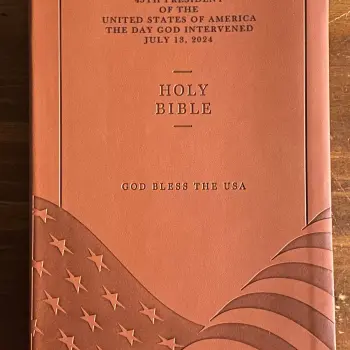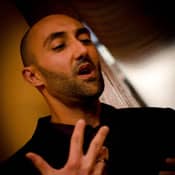Last month, South Dakota passed a law that seeks to prevent the enforcement of "any religious code." The very brief bill stated simply: "No court, administrative agency, or other governmental agency may enforce any provisions of any religious code."
It seems quite innocuous, but clearly, it was intended to target the threat of sharia law. In many other states, similar laws do not mention sharia explicitly, but rather "foreign law" or "foreign codes." As many have pointed out, this is a solution looking for a problem, as nowhere in America are Muslims seeking to supplant the Constitution with sharia law. If you think about this and delve into South Dakota's law and similar laws in other states, one thing starts to become clear: Leaving aside the fact that these laws are discriminatory by their very nature, any law that bans "foreign codes" should cause Catholics to take heed.
That is because the Holy See, which is the source of Catholic canon law, resides in the Vatican, a city-state that is a sovereign, independent country. Thus, technically, Catholic Canon Law is a "foreign code" or "foreign law," and those state laws that prevent courts from enforcing or taking "foreign laws" into account should also then apply to Catholic Canon Law.
This is significant because any marriage officiated in a Catholic Church under Catholic religious rules cannot be enforced by the courts if anti-Sharia bills become law. Couples need to get a marriage license, but if they choose to have, for example, a Catholic religious ceremony—which brings the marriage into being—in a church rather than a courthouse, then those marriages are performed using a "foreign law."
If, God forbid, such a couple were to then divorce, the court cannot do anything because the marriage was officiated with a "foreign law." If one spouse were to die, the court would not be allowed to enforce the deceased's will, because, again, the marriage was officiated using "foreign law." If a spouse is sick and incapacitated in a hospital, how can the health care providers take the spouse as a surrogate decision maker if, in the first place, the marriage cannot be enforced because it was officiated using "foreign law"?
The Catholic bishops objected to the Obama Administration's mandate in the Affordable Care Act that employers, including those affiliated with the Church like universities and hospitals, provide insurance coverage for contraception. They based this objection upon their religious beliefs. Catholics in South Dakota, or any state that has an anti-"foreign law" bill, however, cannot have the courts hear their objection, because the law prohibits courts from enforcing "any provisions of any religious code."
This may seem outrageous and totally un-American, but that is what the law in South Dakota says: "No court, administrative agency, or other governmental agency may enforce any provisions of any religious code." And if the state legislators replace "religious code" with "foreign law," then this would apply even more strictly to Catholics since, again, their religious code emanates from a foreign country. But no, you may be thinking, this law was supposed to target Sharia law, not Catholic law.
But be aware—once government tries to target and discriminate against one religious group, it does not take much for other religious groups to suffer the same fate. That is what makes America such a wonderful place: Here, people of all religious faiths can practice their beliefs freely without fear of the government targeting them for their faith. Once state legislatures abandon this principle, everyone suffers, not just the targeted minority.
Already, a similar anti-Sharia bill in Oklahoma was stuck down as unconstitutional, and my hope is all such laws suffer the same fate. Freedom of religion is one of the cornerstones of our republic. Let not fear and ignorance erode that freedom, and in the process, betray the very principles that make our nation the best in the world.
12/2/2022 9:09:41 PM





